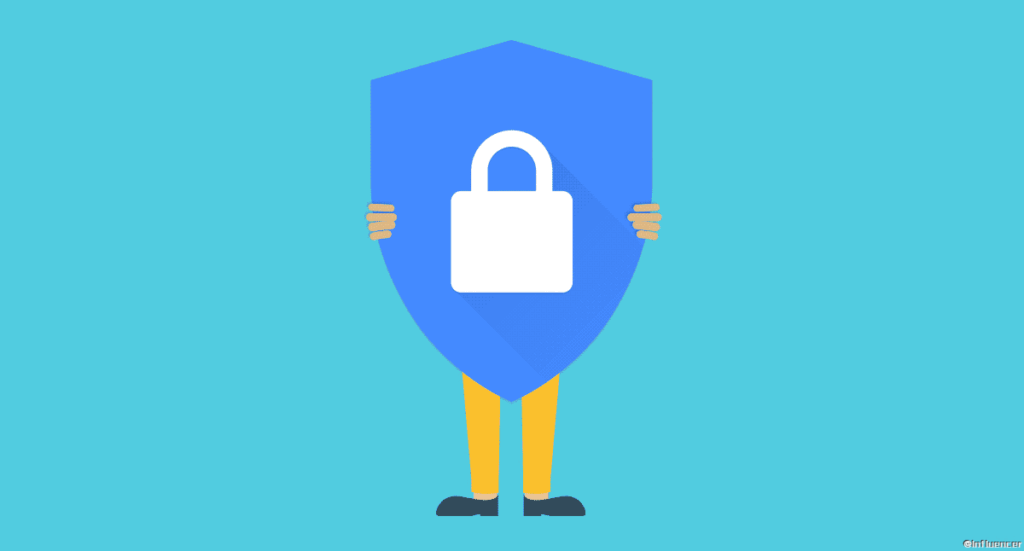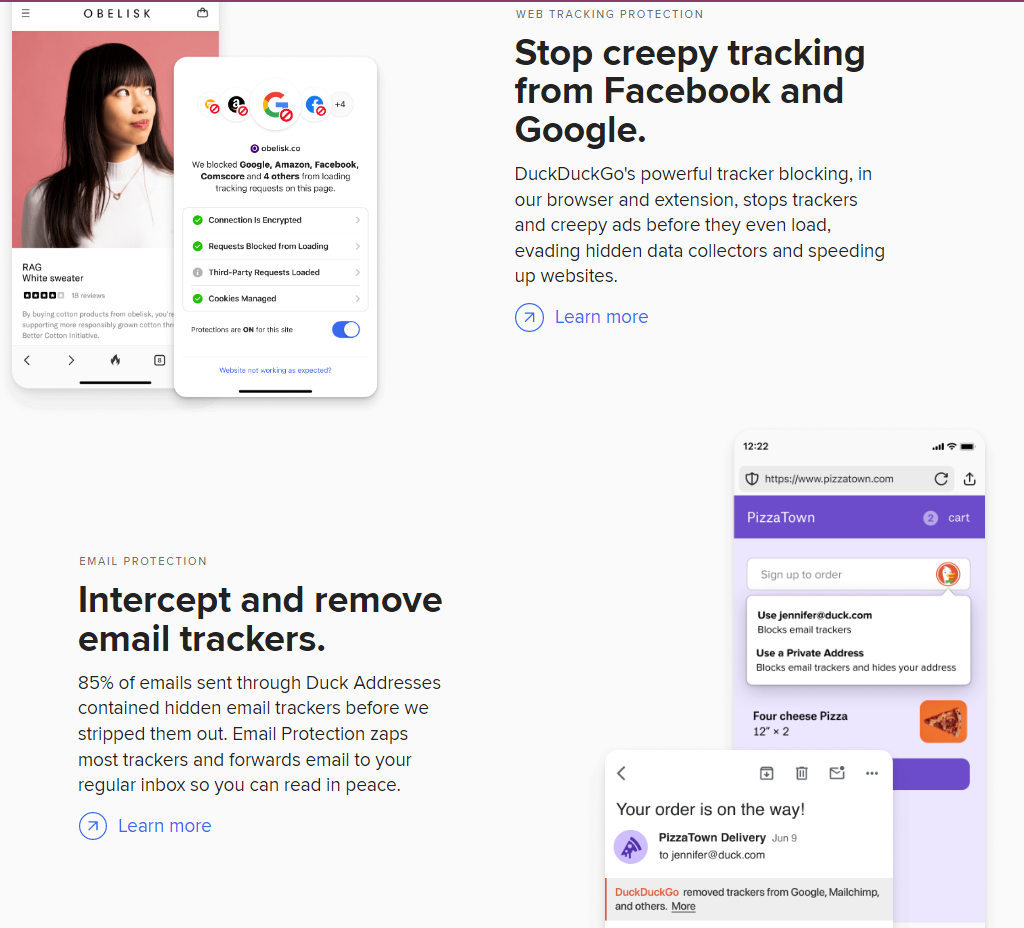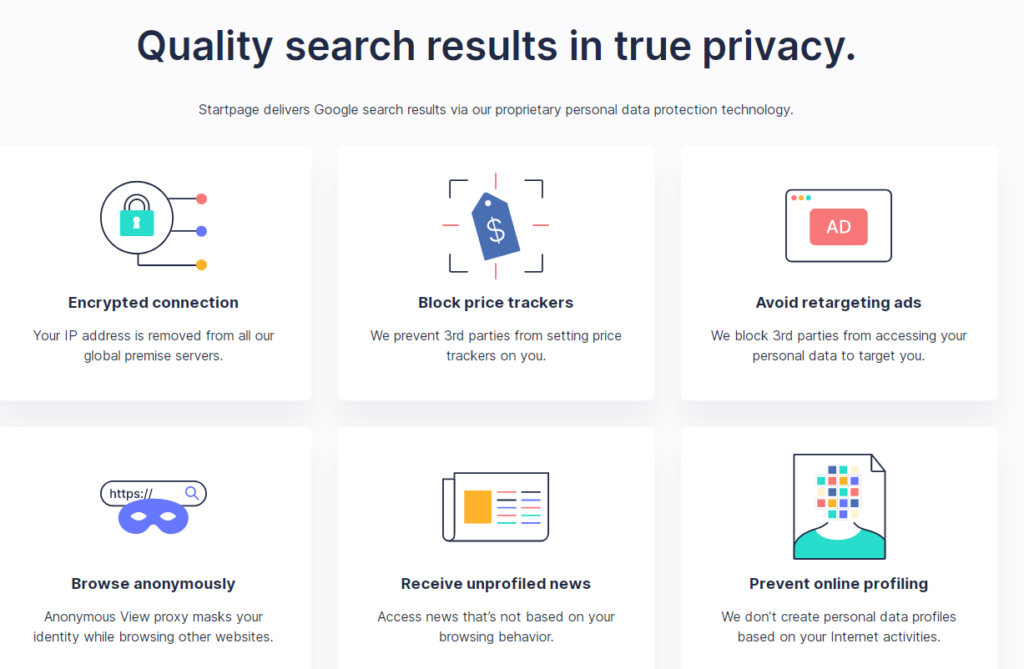Technology Is Tracking You. Take These Steps For Better Online Privacy

Google, Facebook, Twitter, Instagram and other companies make your personal data their product.
Even everyday online activities like purchasing groceries or looking up the local weather can result in dozens of companies tracking you.
85%of popular sites have third-party trackers.![]()
85%of emails have third-party trackers.![]()
96%of popular Android apps have third-party trackers.![]()
To protect your accounts, practice good security hygiene.
There are some steps that make sense for almost all of us, says Rob Braxman, professional cybersecurity analyst . Those include using strong passwords, disposable emails , temporary phone numbers, always clear browsing history, give out less personal private information, and use virtural machines.
He and other professionals make a distinction between privacy and security when it comes to your data. Security generally refers to protecting against someone trying to access your stuff — such as stealing your credit card number or hacking your accounts. Privacy is more often used to talk about keeping your movements from being tracked for purposes of advertising or surveillance.
It turns out that the steps to protect your security are more clear-cut than those for privacy — but we’ll come back to that.
TED RADIO HOUR
Edward Snowden: Why Does Online Privacy Matter?
Use strong passwords or passphrases for your accounts. Longer than a password, passphrases should be strong and unique for each site. Don’t use 1234. Bring some randomness and special characters into it. And don’t use the same password for different websites: You don’t want all your accounts to be compromised just because one gets hacked.
Use a password manager to keep track of your passwords, Galperin says — then all you have to do is remember the passphrase for your password manager.
Multiple types of privacy protection with DuckDuckgo.com
The DuckDuckGo website offers Web Tracking Protection, Smarter Encryption, Private Search, Email Protection, and more.
Checkout more about Duckduckgo.com below.




You may also checkout Startpage.com





Protect what matters most.
Depending on your situation, you might want to take additional precautions to safeguard your privacy and security.
To figure out what steps people should take to safeguard their stuff, Galperin suggests you make a security plan. The Electronic Frontier Foundation has a guide to doing this, which starts by asking yourself these questions:
- What do I want to protect?
- Whom do I want to protect it from?
- How bad are the consequences if I don’t?
- How likely is it to need protecting?
- And how much trouble am I willing to go through to try to protect it?
Resources For Securing Your Data
The Surveillance Self-Defense site from the Electronic Frontier Foundation is a good place to start. Here’s its guide to making your own security plan and figuring out what you most want to protect.
From Tactical Tech, here are handy how-to kits for different scenarios, including securing your data, increasing your online privacy and making your phone less addictive.
You can use the answers to those questions to focus your efforts on securing the things that matter most to you.
Delete some apps from your phone. Use a browser instead.
Matt Mitchell is a tech fellow at the Ford Foundation, and the founder of CryptoHarlem, an organization that teaches people to protect their privacy, including from surveillance.
Apps can learn a lot about you due to all the different types of data they can access via your phone. Seemingly harmless apps – like say, a flashlight app — could be selling the data they gather from you.
That’s why Mitchell recommends “Marie Kondo-ing” your apps: Take a look at your smartphone and delete all the apps you don’t really need. For many tasks, you can use a browser on your phone instead of an app.
Privacy-wise, browsers are preferable, because they can’t access as much of your information as an app can.
I mentioned to Mitchell that even though I use Facebook and Twitter, I don’t have those apps on my phone — partly so that I’ll use them less, and partly for privacy reasons. I wanted to know — did I accomplish anything by not having those apps on my phone?
“You’ve accomplished a lot,” he says. He compares it to oil companies turning crude into petrol: Your data can be turned into profit for these companies. “Every time you don’t use an app, you’re giving them less data, which is less money.”
Mitchell says that’s true even if you’ve been on Facebook a long time, and it feels like the company already knows everything about you. He compares it to smoking: It’s never too late to cut back or quit — you’ll still benefit by giving it less data to harvest.

